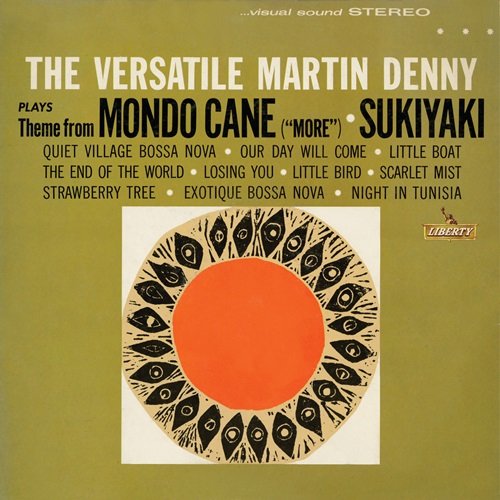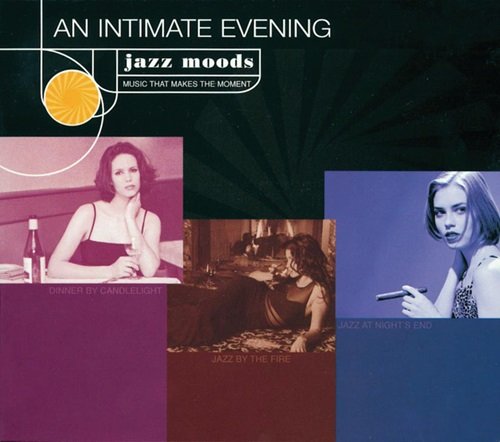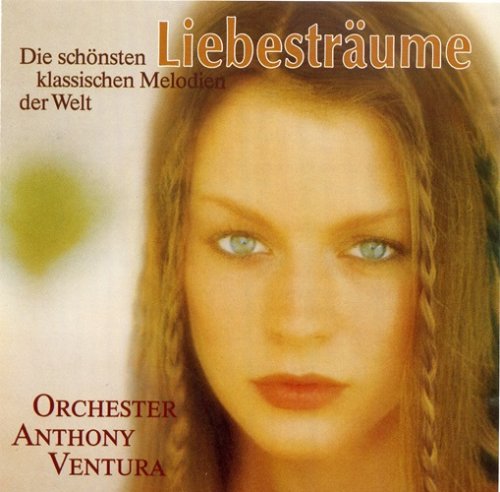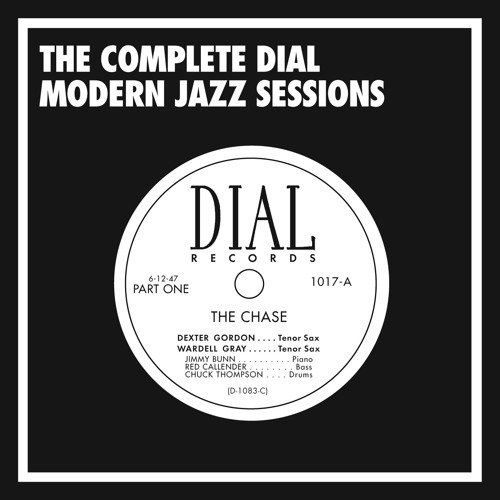Sir Colin Davis - Berlioz: Complete Orchestral Works (1997)
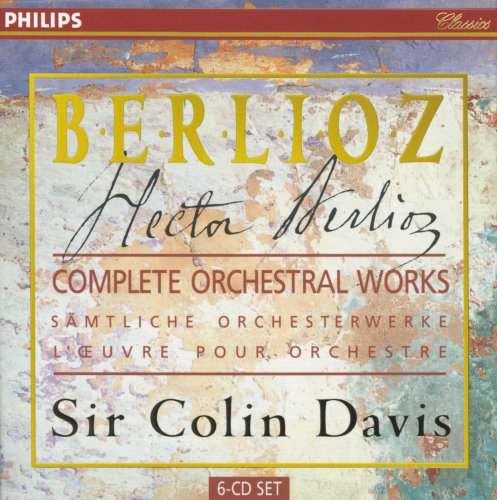
Artist: Sir Colin Davis
Title: Berlioz: Complete Orchestral Works
Year Of Release: 1997
Label: Philips
Genre: Classical
Quality: FLAC (tracks)
Total Time: 06:33:50
Total Size: 1.8 Gb
WebSite: Album Preview
Tracklist:Title: Berlioz: Complete Orchestral Works
Year Of Release: 1997
Label: Philips
Genre: Classical
Quality: FLAC (tracks)
Total Time: 06:33:50
Total Size: 1.8 Gb
WebSite: Album Preview
CD 1
Symphonie Fantastique, Op. 14
1 Rêveries, Passions (Largo - Allegro Agitato Ed Appassionato Assai) 15:15
2 Un Bal (Valse: Allegro Non Troppo) 6:11
3 Scène Aux Champs (Adagio) 17:08
4 Marche Au Supplice (Allegretto Non Troppo) - 6:48
5 Songe D'Une Nuit Du Sabbat (Larghetto - Allegro - Ronde Du Sabbat: Poco Meno Mosso) 9:51
Tristia, Op.18 (Excerpts):
6 Marche Funèbre Pour La Dernière Scène D'Hamlet (Allegretto Moderato) 8:57
La Damnation De Faust, Op.24 (Excerpts):
7 Menuet Des Follets 5:41
8 Marche Hongroise 4:54
CD 2
Lélio Ou Le Retour Á La Vie, Op.14b
1 Le Pêcheur (Goethe/Duboys) 4:22
2 Choeur D'Ombres (Berlioz) 5:16
3 Chanson De Brigands (Berlioz) 4:03
4 Chant De Bonheur (Berlioz) 4:52
5 La Harpe Éolienne - Souvenirs 2:45
6 Fantaisie Sur La Tempête De Shakespeare (Berlioz) 14:17
Grande Symphonie Funèbre Et Triomphale, Op.15
7 Marche Funèbre (Moderato Un Poco Lento) 17:23
8 Oraison Funèbre (Adagio Non Tanto - Andantino Un Poco Lento E Sostenuto) 8:13
9 Apothéose (Allegro Non Troppo E Pomposo) 9:08
CD 3
Harold En Italie, Op.16 (Symphony With Viola Solo)
1 Harold Aux Montagnes (Adagio) 7:30
2 Harold Aux Montagnes (Allegro) 7:34
3 Marche Des Pèlerins (Allegretto) 8:35
4 Sérénade (Allegro Assai - Allegretto) 6:36
5 Orgie De Brigands (Allegro Frenetico - Adagio - Allegro, Tempo I) 11:45
Les Troyens Á Carthage:
6 Prélude From Les Troyens Á Carthage: Part II, Act 3 5:50
Les Troyens (Act IV):
7 No.29: Chasse Royale Et Orage - Pantomime 9:35
8 No.32: Marche Pour L'entrée De La Reine 1:24
No.33 Ballets:
9 - A) Pas Des Almées 4:17
10 - B) Danse Des Esclaves 4:21
11 - C) Pas D'esclaves Nubiennes 1:22
12 Rêverie Et Caprice, Op.8 Romance For Violin And Orchestra 7:24
CD 4
Roméo Et Juliette, Op.17
1 Part I | Introduction 4:25
2 Prologue: "D'anciennes Haines Endormies" 5:18
3 Strophe 1: "Premiers Transports Que Nul N'oublie" 3:13
4 Strophe 2: "Heureux Enfants Aux Coeurs De Flamme" 3:22
5 Récitatif Et Scherzetto: "Bientôt de Roméo" - "Mab! La Messagère" - "Bientôt La Mort Est Souveraine" 3:16
6 Part II | Roméo Seul - Tristesse - Concert Et Bal. 6:44
7 Grande Fête Chez Les Capulets 5:53
8 Part III | "Ohé! Capulets! Bonsoir, Bonsoir!" 3:46
9 Scène D'amour 16:02
CD 5
1 Part IV | Scherzo: La Reine Mab, Où La Fée Des Songes 7:48
2 Convoi Funèbre De Juliette: "Jetez Des Fleurs Pour La Vierge Expirée!" 9:50
3 Roméo Au Tombeau Des Capulets 7:59
4 Finale. Choeurs Et Récitatif Du Père Laurence: "Quoi! Roméo De Retour!" 4:28
5 Finale. Air Du Père Laurence: "Pauvres Enfants Que Je Pleure - Mais Notre Sang Rougit Leur Glaive" 8:53
6 Finale. Serment De Réconciliation: "Jurez Donc" 5:28
CD 6
Overtures
1 Béatrice Et Bénédict 7:44
2 Benvenuto Cellini 9:39
3 Le Roi Lear, Op.4 15:43
4 Les Francs-juges, Op.3 12:33
5 Waverley, Op.1 10:21
6 Le Corsaire, Op.21 8:33
7 Carnaval Romain, Op.9 8:58
Performers:
London Symphony Orchestra
Royal Concertgebouw Orchestra
Royal Concertgebouw LSO
Orchestra of ROH
Sir Colin Davis
For those of us who grew up in the 1950s and '60s, the music of Berlioz means Munch and Toscanini: Munch for his incendiary performances of "Symphonie Fantastique," "Romeo et Juliette," "Damnation of Faust," the Requiem and the overtures (among others), Toscanini primarily for his gorgeous reading of "Harold in Italy" but also for his versions of the Roman Carnival Overture and (for those who could find it) the "Romeo" with Gladys Swarthout. These readings had one thing going for them, which was a rhythmic impetus that made even the slow movements exciting. Unfortunately, for those of us who read scores, when we checked these versions against the music we found that Toscanini and Munch had fiddled a bit with tempi and bowing accents in an attempt to make the music more exciting. Is this so bad? Not necessarily, because these conductors had this music in their blood, they were presenting Berlioz as they had processed him over a lifetime of love, and so their fast tempi had little in common with the rattly, jangly readings often turned out by John Eliot Gardiner.
Sir Colin Davis was, and of this reading remains, the greatest Berlioz interpreter of the stereo/digital era. This is no mean feat when one realizes that he now has several competitors in the field, among them James Levine and Charles Dutoit, but in my view only the wonderful John Nelson (whose recordings of the Te Deum and "Nuits d'Ete" with Susan Graham are so wonderful) really comes close. And what makes Davis so great is that, like those legendary conductors of old, he really gets under the skin of Berlioz and makes him exciting while maintaining score tempi. Listen, for instance, to his "Symphonie Fantastique," still the benchmark modern recording after nearly 30 years. Davis also excels in his readings of the Overtures, music from "Les Troyens," and the Symphonie Funebre et Triomphale which grabs the listener and pulls him/her into its vortex of sound.
In the other two symphonies, "Harold in Italy" and "Romeo et Juliette," I sense a lapse of sorts: the slow music is conducted not necessarily too slowly, but with a certain Romantic mushiness bordering on easy listening. This, for me, robs the "Romeo alone" and "Scene d'amour" of its passion, though of course it is wonderful to hear the score in modern stereo instead of Munch's cramped mono, and for me Toscanini's second movement of "Harold," with its peculiar yet engaging walking gait, shall never be surpassed--and, unlike Munch, Toscanini somewhat transcended his mono sound because of the wonderful clarity and transparency of his orchestra. Nevertheless, if I were forced to I would live with this Davis set over my Munch and Toscanini recordings because of their overall warmth and excellent sound.
Other highlights include excerpts from "Lelio" sung superbly by pre-leukemia Jose Carreras (listen to him ascend fearlessly to those high notes--he hasn't done that in nearly a quarter-century!), dramatically astute singing by Patricia Kerns and John Shirley-Quirk in "Romeo," and marvelous interpretations of the Overtures (oh, and you can forget "Rob Roy"...Berlioz decided after one performance that he would never publish it or even bother revising it, hence it is not here). I do question the omission of the Requiem and Te Deum (after all, they ARE "orchestral works"), but with so many riches at such a low price, who cares? Liner notes are sparse, and this is a slimline box which means paper sleeves and no jewel boxes, but so what? For this much Berlioz, so beautifully sung and conducted, the composer himself would gladly have plunked down ...
Sir Colin Davis was, and of this reading remains, the greatest Berlioz interpreter of the stereo/digital era. This is no mean feat when one realizes that he now has several competitors in the field, among them James Levine and Charles Dutoit, but in my view only the wonderful John Nelson (whose recordings of the Te Deum and "Nuits d'Ete" with Susan Graham are so wonderful) really comes close. And what makes Davis so great is that, like those legendary conductors of old, he really gets under the skin of Berlioz and makes him exciting while maintaining score tempi. Listen, for instance, to his "Symphonie Fantastique," still the benchmark modern recording after nearly 30 years. Davis also excels in his readings of the Overtures, music from "Les Troyens," and the Symphonie Funebre et Triomphale which grabs the listener and pulls him/her into its vortex of sound.
In the other two symphonies, "Harold in Italy" and "Romeo et Juliette," I sense a lapse of sorts: the slow music is conducted not necessarily too slowly, but with a certain Romantic mushiness bordering on easy listening. This, for me, robs the "Romeo alone" and "Scene d'amour" of its passion, though of course it is wonderful to hear the score in modern stereo instead of Munch's cramped mono, and for me Toscanini's second movement of "Harold," with its peculiar yet engaging walking gait, shall never be surpassed--and, unlike Munch, Toscanini somewhat transcended his mono sound because of the wonderful clarity and transparency of his orchestra. Nevertheless, if I were forced to I would live with this Davis set over my Munch and Toscanini recordings because of their overall warmth and excellent sound.
Other highlights include excerpts from "Lelio" sung superbly by pre-leukemia Jose Carreras (listen to him ascend fearlessly to those high notes--he hasn't done that in nearly a quarter-century!), dramatically astute singing by Patricia Kerns and John Shirley-Quirk in "Romeo," and marvelous interpretations of the Overtures (oh, and you can forget "Rob Roy"...Berlioz decided after one performance that he would never publish it or even bother revising it, hence it is not here). I do question the omission of the Requiem and Te Deum (after all, they ARE "orchestral works"), but with so many riches at such a low price, who cares? Liner notes are sparse, and this is a slimline box which means paper sleeves and no jewel boxes, but so what? For this much Berlioz, so beautifully sung and conducted, the composer himself would gladly have plunked down ...
DOWNLOAD FROM ISRA.CLOUD
CD1 Sir Colin Davis Berlioz Complete Orchestral Works.rar - 333.3 MB
CD2 Sir Colin Davis Berlioz Complete Orchestral Works.rar - 344.2 MB
CD3 Sir Colin Davis Berlioz Complete Orchestral Works.rar - 346.7 MB
CD4 Sir Colin Davis Berlioz Complete Orchestral Works.rar - 244.6 MB
CD5 Sir Colin Davis Berlioz Complete Orchestral Works.rar - 209.4 MB
CD6 Sir Colin Davis Berlioz Complete Orchestral Works.rar - 360.2 MB
CD1 Sir Colin Davis Berlioz Complete Orchestral Works.rar - 333.3 MB
CD2 Sir Colin Davis Berlioz Complete Orchestral Works.rar - 344.2 MB
CD3 Sir Colin Davis Berlioz Complete Orchestral Works.rar - 346.7 MB
CD4 Sir Colin Davis Berlioz Complete Orchestral Works.rar - 244.6 MB
CD5 Sir Colin Davis Berlioz Complete Orchestral Works.rar - 209.4 MB
CD6 Sir Colin Davis Berlioz Complete Orchestral Works.rar - 360.2 MB

![Leslie Baron - In Jest (2025) [Hi-Res] Leslie Baron - In Jest (2025) [Hi-Res]](https://img.israbox.com/img/2025-12/18/2sqpj360q2wy5vki1452chspo.jpg)
